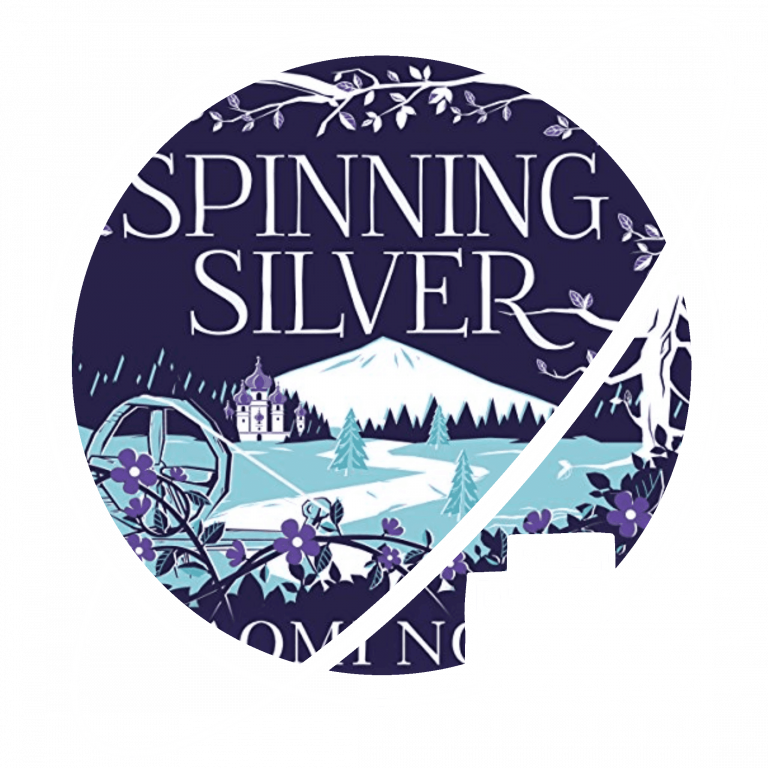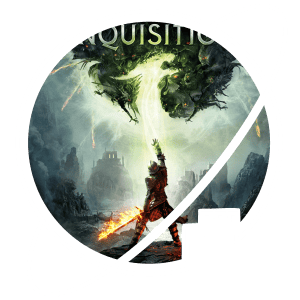- Book written by Laura R. Samotin
- Published 7 May 2024
- Standalone (so far)

Full disclosure: we received a free advance reading copy for The Sins on Their Bones.

I had a hard time assigning a star rating to this book. Overall, I think three stars is suitable.
At the start, I really enjoyed The Sins on Their Bones. Samotin does an excellent job of setting the scene. Despite the story starting somewhat in the middle, or even after a lot of the events in the story, you get a good sense of the characters, the world and the plot.
However, there were a couple of things that made it hard for me to fully enjoy the book.
My first issue is the amount of sex scenes. I know “spice” is hugely popular among certain readers these days, and in and of itself, sex can have a place in a story. However, there are so many sex scenes in this book, to the point that they take up valuable space where we could have had some story instead. Eventually even one of the characters remarks that two people are busy banging when they REALLY should be on their way to move the story forward. It’s not until almost halfway through the book that they stop boning and get to the point.
My second issue is that while Samotin does a pretty good job starting the story in media res, we don’t really get enough throwbacks to the events that happen before the book starts to really experience them. Mostly the events just get mentioned, and they sound pretty cool! As the end of the book has some set-up for a sequel, I am left wondering why The Sins on Their Bones itself isn’t the sequel to another book. This would have given us more time to see characters fall in love, instead of just being told that they’ve had feelings for a long time. There’s plenty of interesting material and story for a first novel, so I didn’t quite understand the choice to begin the story where it does until I read the acknowledgements. The author does explain her reasoning here, but perhaps as an editor, I would have recommended a different approach to the story.
Partly because of these factors, I feel the pacing in The Sins on Their Bones is off. The beginning drags on for too long, and the ending is quite rushed.
In her Author’s note, Samotin expresses that one of her main goals with the book was to convince her audience of how interesting a story about Jewish folklore and myths can be. In this, I would say she has definitely succeeded. I was also happy to see a fantasy world in which queer characters are portrayed as completely normal.

The Sins on Their Bones has a pretty good marketing blurb, but unfortunately, I found it more frustrating than enjoyable to read.
The premise and setting bring all the ingredients for an exciting and original tale. Late 19th-century Eastern Europe is not exactly a well-explored backdrop for fantasy stories, and I actually liked that the story starts after our protagonist already lost the war and has had to retreat into exile. I feel like many authors would have felt the need to write the story during the war first; but the necessary details are conveyed through flashbacks and memories; it worked surprisingly well and is a relatively novel take. Great ideas to start the book with!
Unfortunately, that’s about as far as my positive impressions go. My lists of complaints is a lot longer. If I had to sum it up in a single sentence, it is that most elements of the novel are underdeveloped, and the parts that Samotin does spend a lot of effort on, made me want to put the book away rather than read it.
Let’s get into a bit more detail.
First, I think the plot is bad. No point sugar coating it. I recognise it was never going to be the book’s selling point, so I get that it wasn’t the author’s focus. But I found myself rolling my eyes pretty frequently.
The Sins on Their Bones feels like it is written entirely on the fly, with no effort spent to plant the seeds for problems or solutions before they become apparent. This is especially noticeable in the placement of flashback scenes or descriptions of the past, which give characters a motivation or required information to do a thing, right before the plot requires them to do that exact thing. A problem comes up, Samotin describes that the characters know how to solve it, and then the characters solve it, right before the next problem comes up, etc.
Emblematic is that several times when the characters run into a problem, the next scene features them going to the local library(/villain’s study) to look for a solution. Invariably, they will find a book which contains the key, with absolutely zero conflict involved. What is worse, the solution found in the book generally appears ludicrous to the reader, but the characters either do not mind or find “it is the only way”.
That latter trope is one that Samotin uses pretty heavy-handedly throughout The Sins on Their Bones. Characters will make some absolutely bewildering decisions without considering any logical alternatives , just so the plot continues to roll forward.
So you’re not reading for the plot. How about the prose? That, too, felt a bit under-edited. It might be a style preference, but the relatively long sentences and unbroken paragraphs of emotional outpourings made me read through some pages top left to bottom right without feeling the need to slow down anywhere.
Emotional outpourings you say? Is this just a character-driven novel and am I showing my biases? Well, yes and yes – but this book does not have strong characters. I guess we should say it has three main characters – Dimitri, Vasily, and Alexey – but out of those, only Vasily has any depth; both Dimitri and Alexey are caricatures. The other characters – Ladushka, Annika and Mischa – could literally have been deleted from the book entirely without changing a single emotional beat or plot element. Their single-minded (and entirely unexplained and unjustified – here, that prequel would have been welcome!) love for Dimitri means they’re flat as a pancake as characters. I guess Ivan deserves a mention, as perhaps the only character that I felt for during the entire book – but that is probably because he felt like a child and was literally repeatedly raped.
And there we have it – what The Sins on Their Bones really does.
The Sins on Their Bones is a big mess of dark emotions dripping from the pages: guilt, shame, fear of loss, desperation, anger, lust, depression – in such quantities as to feel gratuitous (and frankly, quite repetitive).
That last description – gratuitous and frankly repetitive – could also be applied to the sex scenes in this book. It feels as if every character interaction must contain at least a reference to sex or sexual desire. Multiple-page sex scenes – in the large majority of cases, portraying very (and I mean, very) unhealthy sexual relationships – are this book’s bread and butter.
As a result, The Sins on Their Bones left me with the icky feeling that Samotin was constantly trying to shock me with cheap, ever-increasing emotional horrors at the expense of any real story or character development. As if she felt that just flooding the characters with absolutely terrible ordeals would stun me to the point where I would no longer notice the lack of a meaningful plot. The result is the opposite: because there is absolutely no subtlety to any of the misery, I found myself more detached from the characters rather than pulled in.
I have a long list of minor gripes (see below), but the bottom line of this review is that while the idea of The Sins on Their Bones and the marketing blurb set the stage for a wonderful novel, the execution is severely mediocre as a result of a focus on traumatising the reader rather than telling a story. I am going to have to admit that I would not have finished this book if I had not received an advance reading copy in exchange for a review – so here we are.
If you stuck around this long, you might also be interested in some of those little things that shouldn’t really matter, but bothered me nonetheless and added to my frustration with The Sins on Their Bones. I shouldn’t be doing this, I am being exceedingly petty, the book does not deserve this kind of roast, but sometimes writhing things down works therapeutically.
Some of these might contain minor spoilers and most of these contain strong language to properly convey my frustration.
- It’s the late 19th century, why are your soldiers ‘laying supply lines’ for months – where are your trains? Those big things on tracks for moving stuff and soldiers, you know? Choo-choo?
- If your soldiers are ‘laying supply lines’ for months on end – they’re eating the fucking supplies, that’s what supply lines are for! I get that this (unintentionally?) ended up being solved by the plot, but supposedly brilliant Annika or Ladushka should have known something was up from page 1!
- It’s the 19th fucking century, why are you using parchment for taking notes – you are like 400 years out of date!
- That fucking library was not only a terrible plot device, but also the most jarring mood-breaker I’ve come across in years – I would have binned the book right then and there if I had not been reading for this review (or on my phone…). The only offender that was worse was the part where they literally solved a problem… by following a goat until it stopped and there happened to be a demon there that could just tell them what they needed to know. I just have to believe Samotin snuck that chapter past the editor unseen…
- Why is Dimitri’s “court” literally four… teenagers? Twentysomethings? Where are all the other people? Where are his political supporters, his guards, his servants? Why did Samotin miss this opportunity to let any of them apart from Vasily do literally anything except go to that fucking library?
- Why do they keep acting like Dimitri could have shot Alexey at 200 paces with a pistol? Why do we make a point out of it even though we apparently understand the man is immortal? The emotional weight of the moment just crumbles when you know it wouldn’t have done anything even if he could have hit at that distance…
- You can’t tell me anyone can draw a ‘perfect likeness’ of particular person’s face on top of the existing portrait on a playing card.
- Etc.















